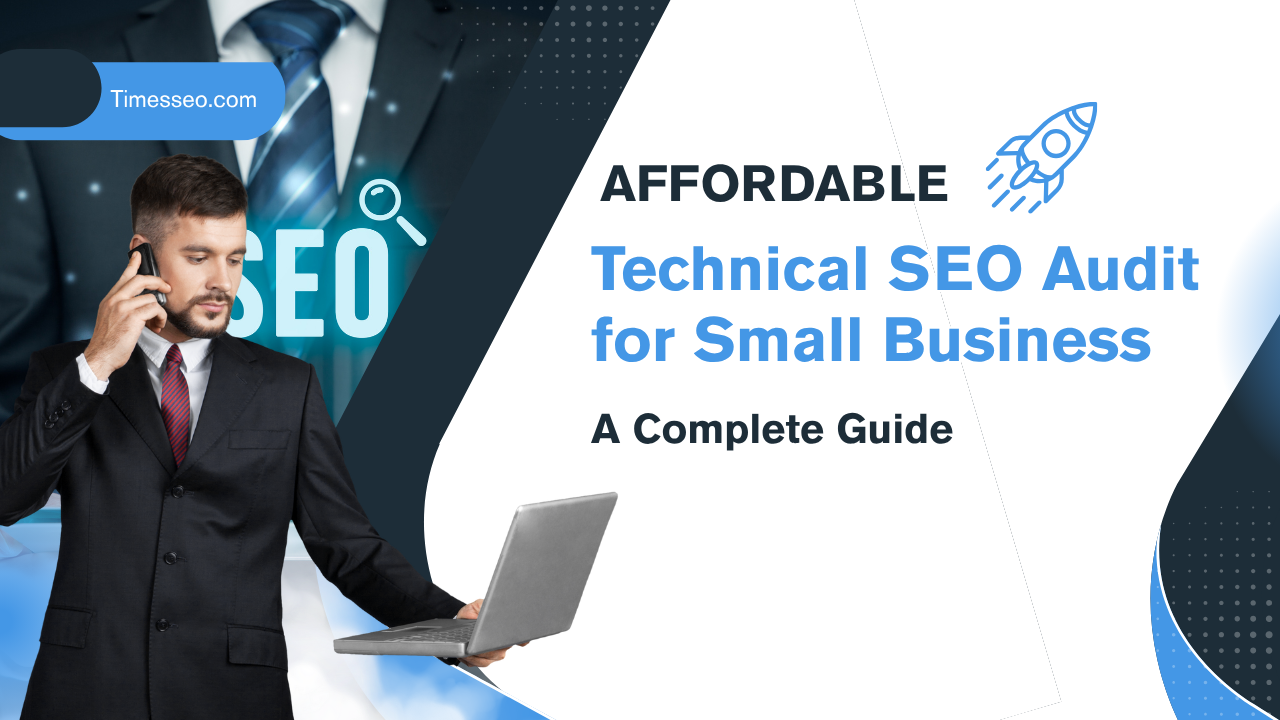
Targeted SEO for Startup in Competitive Tech Niches
Explore how tech startups can rise above the noise in saturated markets with targeted SEO for startup success. In this blog post, “Targeted SEO for Startup in Competitive Tech Niches,” you’ll learn actionable strategies—from smart keyword planning and technical SEO to content creation and backlink building—that help Early-stage digital firms compete with industry titans, increase visibility, and draw in the correct audience.
Table of Contents
Introduction
Let’s face it—trying to rank a brand-new startup website in the tech space is like trying to shout in a stadium full of screaming fans. Everyone’s loud, everyone’s clever, and the big names already have the spotlight. So how do you, the underdog startup, break through?
With targeted SEO for startup success, even in the most competitive tech niches, you can carve your own lane—and win.
Understanding the Tech Landscape
What Makes Tech Niches So Competitive?
Tech is fast-paced, buzzword-heavy, and dominated by companies with deep pockets. Everyone’s chasing the same audience with overlapping products—be it SaaS, AI tools, DevOps platforms, or cybersecurity solutions.
Common Challenges Tech Startups Face in SEO
- Getting noticed with a low domain authority
- Explaining technical products to non-technical users
- Building content while still developing the product
The Foundation of a Targeted SEO Strategy
Defining Clear SEO Goals
Are you trying to generate leads? Educate users? Or rank for brand terms? Knowing your SEO mission shapes every move you make.
Audience Persona Creation
Define exactly who you’re targeting—CFOs? Product managers? Developers? Each persona has unique search behavior.
Competitor SEO Analysis
Use tools like SEMrush or Ahrefs to uncover:
- What keywords they rank for
- Their backlink sources
- Gaps in their strategy you can exploit
Smart Keyword Strategy in Crowded Markets
Going Beyond Broad Keywords
Don’t chase “project management software.” Instead, go for “project management tool for remote teams in fintech.” Be specific to win.
Focusing on Problem-Solving Phrases
Think like your user:
Instead of “best CRM,” they search “how to track customer emails automatically.”
Leveraging Product-Led Keywords
Use words your product directly solves.
E.g., a password manager might target:
“How to safely store remote employee passwords”
On-Page Optimization Tailored for Tech Startups
Crafting High-Converting SEO Pages
Your homepage, landing pages, and blog posts should do more than rank—they should convert.
- Use benefit-driven H1s
- CTAs throughout the page
- Answer objections in content
Metadata That Speaks to the Niche
Craft compelling meta titles and descriptions with urgency, pain points, and your unique value prop.
Technical Content That Non-Tech Readers Can Understand
To make complex things simpler, use analogies, pictures, and plain language. Your dev team might love your tool—but they’re not always the buyers.
Content Strategy that Cuts Through the Noise
Niche Blog Topics with Search Intent
Forget generic content. Answer your users’ specific questions.
Think: “How DevOps Teams Can Automate Security Checks with [Your Tool]”
Using Case Studies and Whitepapers
Show real-world value through:
- Customer success stories
- Technical whitepapers
- ROI breakdowns
Developer-Focused vs User-Focused Content
Create content for both:
- Devs → API docs, tutorials
- Users → How-to guides, benefits, and use cases
Link Building in Tech Niches
Building Authority through Guest Posts
Write for industry blogs, SaaS communities, and tech forums. It boosts credibility and brings backlinks.
Leveraging Startup Directories and Product Hunt
List your startup on directories like:
- Crunchbase
- BetaList
- Product Hunt
These sites often have high domain authority.
Outreach that Converts
Don’t spam. Build relationships with relevant site owners. Personalize your pitch. Offer value.
Technical SEO – Non-Negotiable in Tech
Structured Data for Complex Products
Use Schema Markup to help search engines understand your product features, pricing, reviews, etc.
Mobile and Speed Optimization
Tech users are impatient. A 1-second delay in page load can crush conversions.
Using Canonicals and Fixing Crawl Issues
Steer clear of duplicate content problems, particularly when using product filters or dynamic sites.
Building Trust with E-E-A-T
Showcasing Expertise and Authoritativeness
Add:
- Author bios
- Certifications
- Media mentions
- Customer logos
Secure, Transparent, and User-Centric Websites
Use HTTPS, have a clear privacy policy, and make sure your UX doesn’t feel shady or over-optimized.
Tracking and Adjusting Your Strategy
What Metrics Matter Most in Tech SEO
- Organic sessions
- Conversion rate from SEO
- Pages per session
- Time on page
Using Heatmaps and Scroll Depth to Improve UX
Tools like Hotjar help you understand user behavior beyond bounce rates.
Learning from Google Search Console Reports
Use GSC to spot:
- CTR drops
- New keyword opportunities
- Indexing issues
Case Studies – Startups That Made It
SaaS Startup: Ranking for Long-Tail, Winning Leads
Focused on “how-to” blog posts, built a knowledge base, and gained 120% growth in organic leads in 5 months.
Cybersecurity Tool: Solving Specific Pain Points
Wrote pain-point-driven content for industries like healthcare and finance. Increased demo requests by 60%.
Takeaways from Their Journeys
- Start small, go deep
- Don’t be afraid to niche down
- SEO is a compounding investment
SEO Pitfalls to Avoid in the Tech World
Over-Optimizing for the Wrong Audience
Don’t write for Google bots. Write for people who buy.
Neglecting Updates and Algorithm Changes
The SEO landscape shifts. Stay updated or get buried.
Preparing for the Future of Tech SEO
Voice Search, AI, and Semantic Search
Optimize for conversational queries like “best tool to automate tech documentation.”
SEO for APIs, Tools, and Platforms
Use clear documentation, dedicated feature pages, and developer-first content architecture.
Conclusion
Ranking in competitive tech niches isn’t impossible—it just requires precision. With targeted SEO, a solid strategy, and consistent execution, your startup can absolutely outshine the Goliaths of your industry.
Frequently Asked Questions
Standing out in a saturated market with low domain authority.
Organic SEO offers long-term, sustainable traffic—ideal for budget-conscious startups.
Target niche long-tail keywords, provide more value, and focus on speed and user experience.
Optimize meta tags, claim Google Business Profile, and fix crawl errors.
Absolutely—especially when it’s strategic, specific, and SEO-optimized.
Table of Contents
Popular Posts
-
 Affordable Technical SEO Audit for Small Business: A Complete Guide26 Jun 2025 Blog
Affordable Technical SEO Audit for Small Business: A Complete Guide26 Jun 2025 Blog -
 How to Get an Affordable Technical SEO Audit for Small Business27 Jun 2025 Blog
How to Get an Affordable Technical SEO Audit for Small Business27 Jun 2025 Blog -
 The Ultimate Local SEO Audit Checklist for Startups28 Jun 2025 Blog
The Ultimate Local SEO Audit Checklist for Startups28 Jun 2025 Blog -
 Local SEO Audit Checklist for Startups: A Beginner’s Guide28 Jun 2025 Blog
Local SEO Audit Checklist for Startups: A Beginner’s Guide28 Jun 2025 Blog -
 Top On-Page SEO Audit Steps for Service Websites Every Business Should Know29 Jun 2025 Blog
Top On-Page SEO Audit Steps for Service Websites Every Business Should Know29 Jun 2025 Blog -
 Technical SEO for WordPress: The Ultimate Beginner’s Guide01 Jul 2025 Blog
Technical SEO for WordPress: The Ultimate Beginner’s Guide01 Jul 2025 Blog -
 The Impact of On-Page SEO Audit Steps for Service Websites on UX01 Jul 2025 Blog
The Impact of On-Page SEO Audit Steps for Service Websites on UX01 Jul 2025 Blog -
 Technical Mobile SEO Audit Tips for Developers02 Jul 2025 Blog
Technical Mobile SEO Audit Tips for Developers02 Jul 2025 Blog -
 Complete SEO Backlink Audit Guide for Better Google Rankings03 Jul 2025 Blog
Complete SEO Backlink Audit Guide for Better Google Rankings03 Jul 2025 Blog -
 Boost Your Rankings with Technical SEO for WordPress01 Jul 2025 Blog
Boost Your Rankings with Technical SEO for WordPress01 Jul 2025 Blog






